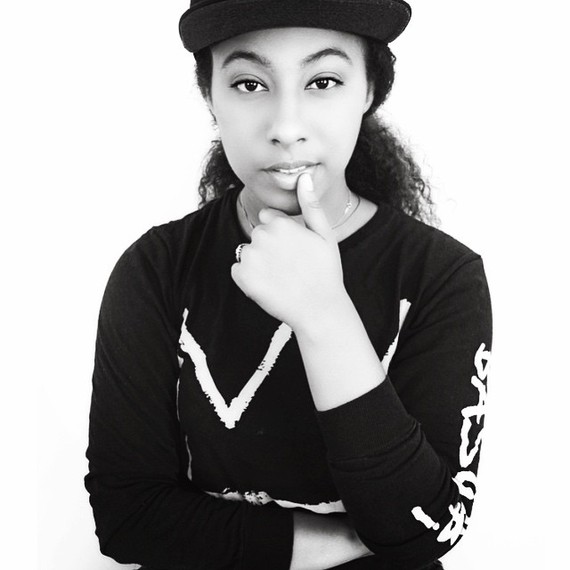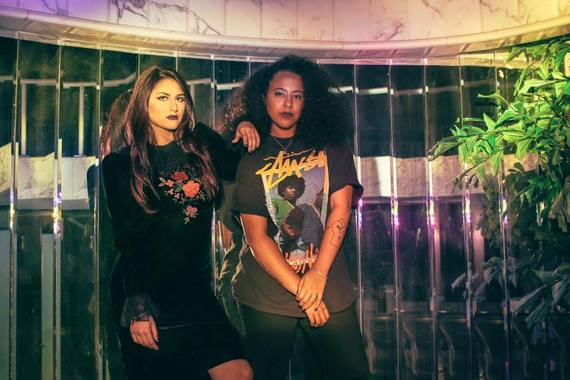[ad_1]

Photo courtesy of facebook.com/kat.lin.wagz
Standing completely in your truth is by the far the most difficult task. It requires an elevated level of both self-awareness and acceptance that is as noteworthy as a Nobel Prize. Our society thrives off insecurity and self-doubt, causing many of us to spend countless hours and dollars perfecting our perceived flaws. We wear make up to cover scars. We blame others for our mistakes. We cover up trials of imperfection at every opportunity. The constant fear of judgment is all too real, and our flaws are only to be unveiled to those we trust the most. Therefore, we create a demi-version of the self, void of flaws, to be presented to the world, internalizing our adversities.
Our attempt at perfection is built on a false notion that the world will be more accepting of us without our imperfections. We will be increasingly loved, desired, and valued in the denial of flaws. For years, I claimed to be incredibly self-confident, not realizing that I was only confident in the perfect vision of myself. I loved the woman that I presented to the world, but there were dark parts of me that I feared sharing with anyone. When I realized this, I began a journey of self-love that left me filling fulfilled and free.
My journey to revealing my absolute truth and standing strong as both a masterpiece and a work in progress has led me to deeply appreciate the relationship between truth and self love. Poet and performer King embodies this relationship.
King stands tall in her truth, which rests in a very deep sense of self-awareness. Through her battles with depression, mental illness, sexual abuse, drug abuse, and self-neglect, the 22-year-old has experienced an awakening that has acted as a catalyst to her career as a poet. Every conflict, struggle, breakthrough, and lesson has become inspiration for a thought-provoking piece or fiercely honest commentary.
She has tapped into our generation’s intense attraction to authenticity, and has carefully designed a voice of resistance and truth through social media. In her journey towards self-acceptance, social media has acted as a platform for accountability. Instead of judgment, King’s unfiltered rhetoric has attracted a highly engaged audience. And, her reputation as one of the “realest” has solidified her an inspiration and revolutionary figure among her peers.
Aware of her candid nature, King and I spoke about her journey to her new newfound name, gender identity, and successful career as an artist.
Alanah Joseph: You are very honest and forthcoming about very intimate parts of your life and journey. What has it been like to experience such growth publically?
KiNG: It’s really gratifying. Social media holds me accountable on bring transparent. When I let everyone in, I have to be honest with myself. I forget how big my audience is. I run into people that I’m friends with on Facebook and they always say that it’s so inspiring. It can be weird, because I forgot that my journey is bigger than me. Tupac said “I may not start the revolution, but I’ll spark the mind that does.” I feel the same way. My friend always says “My voice is faster than they can smother me.” At the end of the day, I know that for every person that wants me be quiet, there are 10 people that think I’m doing a good thing. It feels good.
AJ: I love the name “King.” So many of us struggle to accept our value internally, and you’ve not only accepted yourself as royal, but you’ve been courageous enough to demand that the public follow suit. What inspired you to change your name to “King?”
KiNG: I started doing therapy after my outpatient program, and in therapy I started to deconstruct so much. I thought back as far as 8 or 9 where I was realizing certain things about my identity that I had to repress. I had been gender fluid from the time I was 7. It was cute when I dressed up like a boy then. But when you get to about 12 or 13 people start to ask you if you’re gay. When my mom asked me if I was dyke, I just said “I don’t know.” I hadn’t even seen a penis. I never really succumbed to masculine or feminine. Gender is a societal construct where we assign traits to certain sexes to perpetuate a comfortable oppression. Why do I have to cater to that when I feel comfortable being in between?
Kaitlyn was never home for me. When I was little I was “Ky,” it was also my nickname at NYU. In high school, it was “Chewy.” It was never Kaitlin. I didn’t really know what I wanted to change my name to, but then I read a poem from one of my mentors. It said “What makes men into kings is not what they can hold on to, but what they can let go of.” It was such a pivotal moment. Then I went to a cipher later that night and I spit “Ain’t no queen, when I can rule like a king.” And everyone around said “that’s it. That’s the name.” It was the first time that I felt at home in a name. This is me and I’m okay with it. In owning that identity, it felt like a rebirth.

AJ: As an observer, it seems that your rebirth started with the motivation to love and value who you truly are. With a history of self-injury and self-neglect, what motivated you to start loving yourself?
KiNG: I didn’t start loving myself until April of last year, when I made the [Da Poetry Lounge] Slam Team. When I was on stage, I felt like I could be myself without any judgment. I was transparent, and everyone seemed okay with it. And, I felt that the way I felt on stage should be a constant. I was being honest and holding mirror up to myself, and sometimes, I was the monster, but everyone was still ok with it. For me, being on stage is an act of self-love. Existing unapologetically is an act of self-love. And in my honesty, I realized that I am a good person.
Before April, when I was trying to figure out how to love myself, I read a quote from Buddy Wakefield: “Forgiveness is the release of all hope for a better past.” Women, especially women of color, are very self-critical. We are inundated with criticism constantly, and it becomes internalized. We tear ourselves apart. My mantra became forgiveness, even if I had to forgive myself for my wrongs every day. The biggest gesture I made to myself was giving back to my community. When I’m able to inspire other people, it generates purpose. I really enjoy being a lighthouse.
AJ: What advice would you give women that are struggling with a lack of self-love?
KiNG: I give this advice to my friends: Have a hobby that fulfills your spiritual self and physical self, and challenges you logically. For me, I pray, and I’m now really in tune with my Christianity. I like to ice skate. Then, of course, I write poems and songs to challenge my mind. Being able to have a balance of these three activities makes me feel whole. And, they make me feel busy too.
Look in the mirror and tell yourself that it’s okay for five minutes every day. Write down three really great things about yourself. Do something that you love. Forgive yourself, and set out to find your purpose.
AJ: Your performance of “Things I Wish” is one of my favorites. One of the warnings that you wish your mother gave is “Beware, you will encounter your sexuality far before you are old enough to understand it.” When did you first encounter your sexuality? When did you understand it?
KiNG: When I was 10, I looked like a teenager, like 14 or 15. When I was 11, my mother made me aware of how many men were staring at me when we would go places. She said “They don’t know how young you are.” That was a pivotal moment. At that point, I became a lot more self-aware and felt like I had to cover it up. I started taking the bus home that year. The high school kids rode on the bus. So I had 16 and 17 year old boys hitting on me. That’s when I start to feel shame. I didn’t understand what I was doing to warrant this, but I didn’t want the attention.
It wasn’t until this year that I understood and became comfortable in my sexuality. I am woman that is okay with saying that I have sexual needs. It’s okay if I decide to sleep with people, whether I want to date them or not. I am sexual being, and that’s fluid, and that’s okay.
I’m also gender fluid. I vary between masculine and feminine. When I’m masculine, I’m not getting a ton of attention. When I dress in a crop top and a skirt, it’s a whole different story. I can feel the entitlement to my body. It feels gross to when male privilege is forced on to you either through cat calling or just blatantly disrespectful behavior.
AJ: After watching your performance it is clear all of the things you wish your mother warned you about, if you ever have a daughter, what advice would you give her?
KiNG: Be unapologetic in your truth. Know that you have a support system. When I was growing up, I didn’t have a support system, and I didn’t feel loved. It manifested into self-hatred and neglect. If I had known that I had someone to talk to, and it was okay for me to be myself, no matter what that is.
I would tell my kid “I love you more than I love myself.” You are a manifestation of me, and I have to pour all of my love into you, so that you can illuminate that love to the world when I’m gone.
With a daughter, I think there needs to be dialogue. When she starts to get older and men are staring at her, I would want to know how she feels and check in with her frequently. I wish my mother would’ve asked me what made me feel comfortable. She dressed me for a long time, so she made me wear dresses and tank tops, and I wish asked me “What do you want to wear?”
There aren’t enough conversations about sex with girls. We hypersexualize boys. But, with girls, sex is very taboo to talk about. It’s taboo to touch yourself. Obviously, I don’t want my daughter to be too graphic, but I would want her to know that it’s okay, and she can always come to me or ask questions. I wouldn’t want to shame her out of her body, which is common for most women. Instead, I would encourage her to become aware of her body and sexuality, allow it to grow, stand in it, and love the entirety that is you.
Follow Alanah on Twitter and Instagram.
[ad_2]
Source link





















